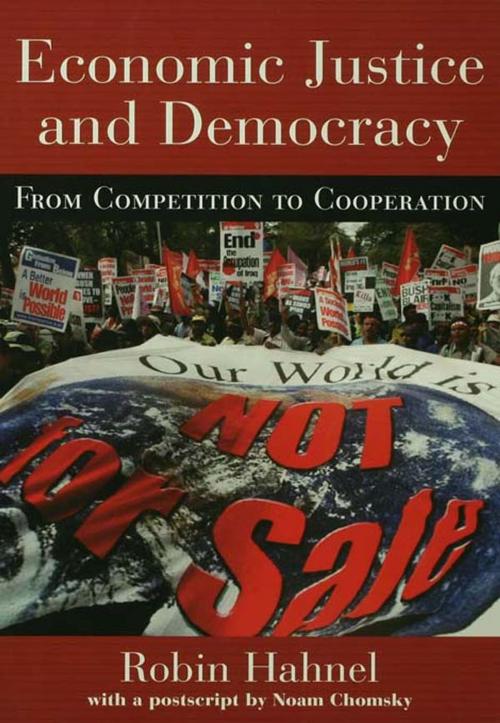Economic Justice and Democracy
From Competition to Cooperation
Nonfiction, Social & Cultural Studies, Social Science, Sociology, Political Science| Author: | Robin Hahnel | ISBN: | 9781135953768 |
| Publisher: | Taylor and Francis | Publication: | May 13, 2013 |
| Imprint: | Routledge | Language: | English |
| Author: | Robin Hahnel |
| ISBN: | 9781135953768 |
| Publisher: | Taylor and Francis |
| Publication: | May 13, 2013 |
| Imprint: | Routledge |
| Language: | English |
InEconomic Justice and Democracy, Robin Hahnel puts aside most economic theories from the left and the right (from central planning to unbridled corporate enterprise) as undemocratic, and instead outlines a plan for restructuring the relationship between markets and governments according to effects, rather than contributions. This idea is simple, provocative, and turns most arguments on their heads: those most affected by a decision get to make it. It's uncomplicated, unquestionably American in its freedom-reinforcement, and essentially what anti-globalization protestors are asking for. Companies would be more accountable to their consumers, polluters to nearby homeowners, would-be factory closers to factory town inhabitants. Sometimes what's good for General Motors is bad for America, which is why we have regulations in the first place. Though participatory economics, as Robert Heilbronner termed has been discussed more outside America than in it, Hahnel has followed discussions elsewhere and also presents many of the arguments for and against this system and ways to put it in place.
InEconomic Justice and Democracy, Robin Hahnel puts aside most economic theories from the left and the right (from central planning to unbridled corporate enterprise) as undemocratic, and instead outlines a plan for restructuring the relationship between markets and governments according to effects, rather than contributions. This idea is simple, provocative, and turns most arguments on their heads: those most affected by a decision get to make it. It's uncomplicated, unquestionably American in its freedom-reinforcement, and essentially what anti-globalization protestors are asking for. Companies would be more accountable to their consumers, polluters to nearby homeowners, would-be factory closers to factory town inhabitants. Sometimes what's good for General Motors is bad for America, which is why we have regulations in the first place. Though participatory economics, as Robert Heilbronner termed has been discussed more outside America than in it, Hahnel has followed discussions elsewhere and also presents many of the arguments for and against this system and ways to put it in place.















